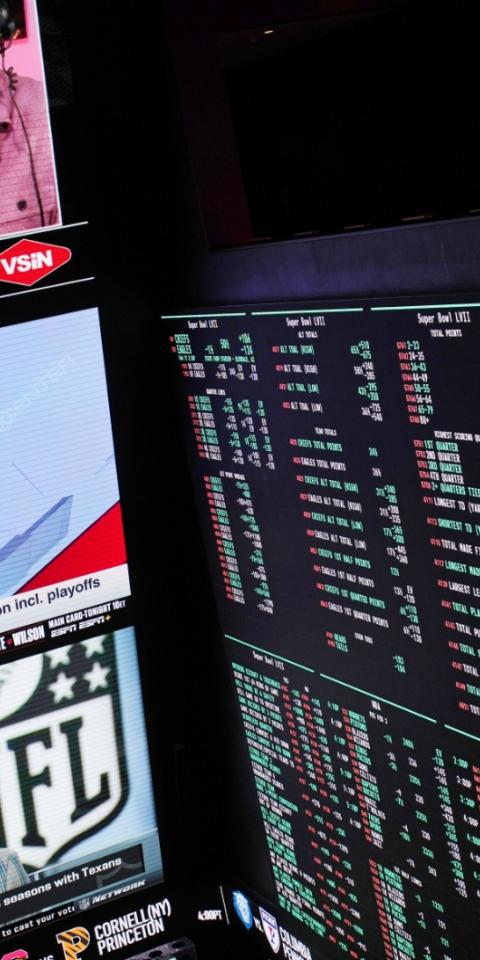Let's say you're tired of paying outrageous fees that cable companies charge to watch your favorite sports. So like many others, you cut the cord and signed up for a streaming service. There are a number of options out there, including popular NFL streaming services, for example, such as YouTubeTV, FuboTV, Hulu, DirectTV and FOX.
By cutting the cord, you've saved a bit of money to watch the sports you love, but that money you saved could have a negative impact on your sports betting.
Live Isn't Live: The Story Of Latency Issues
If you're like me, you watch sports with two screens. I'm streaming the game on one screen (TV) while the other screen (laptop or mobile) hosts my social media feed. If that's you, then you've experienced having a big moment spoiled with social media going nuts before you see it on your screen.
That's because of the ridiculous latency between what's happening in real time and what you see on your stream. That latency can be as long as 76 seconds!
YouTube TV was 54 seconds behind real-time for the last Super Bowl 👀
— Warren Sharp (@SharpFootball) April 11, 2023
not sure the delay for a regular Sunday afternoon during next NFL season with Sunday Ticket on YouTube TV but likely more than it was with DirecTV (with dish, latency of ~ 24-30 seconds) pic.twitter.com/gCGONS21Sn
I get that measuring anything in seconds kind of takes the bite out of what I'm saying, but think about what can be done in 76 seconds:
- Usain Bolt could complete a 100m race eight times.
- A NASCAR drive could complete three laps (on a short track).
- That's a full additional timeout in the NBA
- Joey Chestnut could eat nearly 10 hotdogs
Obviously, being behind the game by that long is a clear disadvantage for sports bettors.
Difficulties For Sports Bettors & The Advantage To The Books
When it comes to betting on live sports, being that far behind could have some seriously negative repercussions.
Imagine you're watching an NHL game where the action flows back and forth constantly. You're watching one team control play in the offensive zone, so you put a unit on them to score the next goal. But seconds later, they take a penalty and the other team scores on the resulting power play.
Because of the lag between the real-time action and what you’re seeing — a delay that can sometimes be close to two minutes — you made a mistake and bet on the wrong team. That’s a free win for the sportsbooks who don't have the same delay.
As Mike Raffensperger points out, as of a year ago, live betting accounted for 50% of the sports betting market in the US. Sports betting is still in its infancy, but the projected growth of this industry will slow and shrink if latencies as we currently know them continue.
3/ Live betting already makes up around 50% of sports betting in the US and this number will likely grow. As more people watch live sports via streaming, it’s critical for the industry to solve the streaming lag issue.
— Mike Raffensperger (@mraffensperger) August 19, 2022
If the live betting market is to grow and reach its true potential, this latency issue has to be fixed as soon as possible.
What Can You Do To Mitigate Your Betting Risk?
So how can you get in on the fun of live betting even though you're streaming the game with that one to two-minute delay?
I'd forget about micro-betting. That new wave of betting on the very-next play doesn't work when you're a play or two behind. So perhaps the play is to go a bit broader with your live bets.
Instead of betting on who scores the next goal, bet on who will score at any time. Instead of betting on the outcome of the very next play, consider betting on the outcome of an inning, half, or period.
